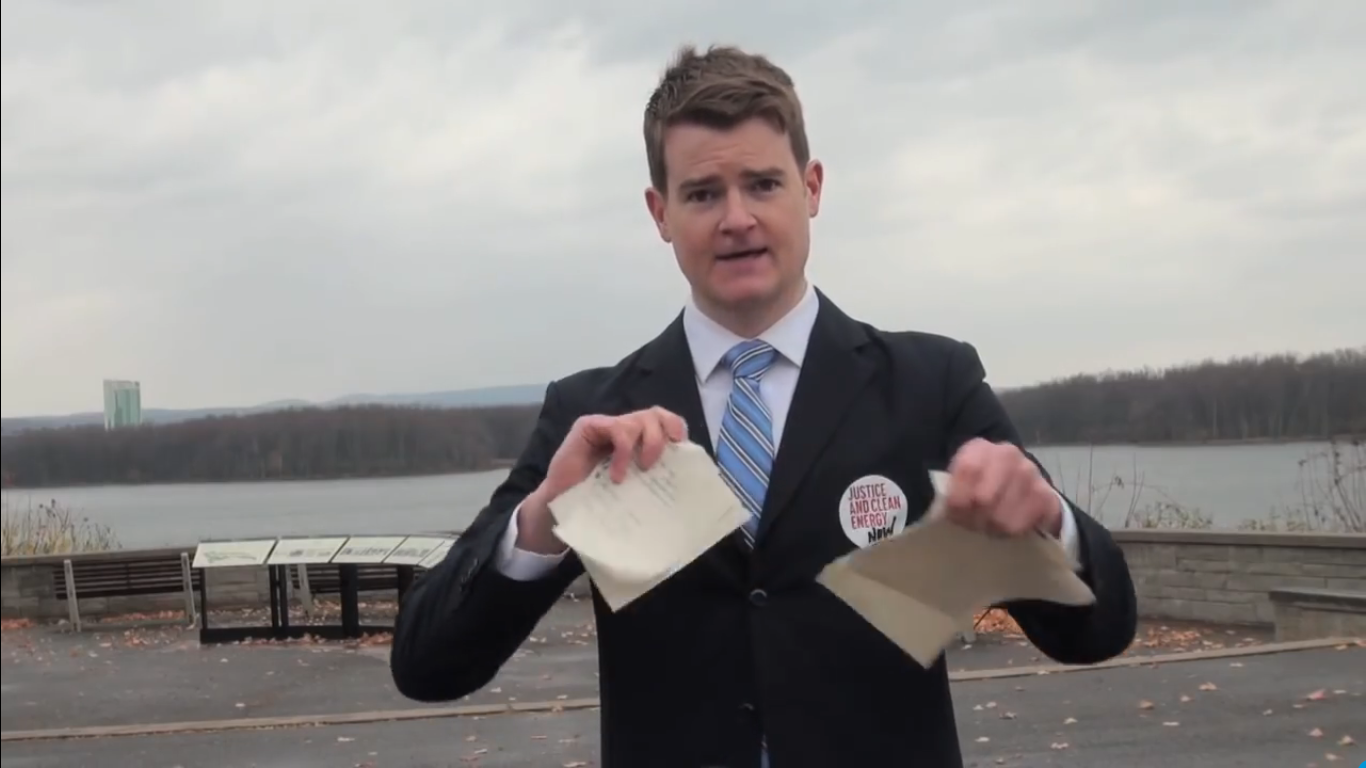Last November, Dalhousie University voted against divesting its holdings in fossil fuel companies.
On Nov. 8, in protest and anger against this decision, Dalhousie alumnus Scott Vrooman ripped up his master’s degree and mailed it back to university president Richard Florizone.
Vrooman appeared on camera on Nov. 8 tearing up his Master of Development Economics degree into small pieces. He called the action a “personally cathartic process.” Vrooman is known as a writer, comedian and political commentator.
“I wanted to send the message that I wasn’t happy about this decision and also to kind of bring more attention to the issue,” said Vrooman over the phone.
In the Nov. 8 video, Vrooman criticized Florizone for not taking a leading stance on the divestment issue and urged other alumni to hand back their degrees. Vrooman also plans to rip up his undergraduate degree from Queen’s University, after learning of Queen’s decision against divestment on Nov. 6.
“Your job is to be preparing students for the future, so you shouldn’t be profiting from an industry that is actively working to make that future uninhabitable,” Vrooman said in the video addressed to Florizone.
According to Dalhousie spokesperson Brian Leadbetter, the President’s Office had not received Vrooman’s destroyed degree as of Nov. 12. Dalhousie remains committed to its earlier decision regarding divestment, and Leadbetter says Dalhousie still believes in reducing greenhouse gas emissions.
“We understand and agree with many of the goals of divestment advocates, but we differ on the best way to achieve these goals,” said Leadbetter via e-mail.
Along with the decision against divestment in Nov. 2014, Dalhousie’s Board of Governors agreed to provide an environmentally sustainable fund option for prospective donors, which is now available. Dalhousie is also honouring its commitment to annually disclose all holdings in publicly traded companies.
“We also believe that Dalhousie will have more influence with regard to climate change as an engaged investor than we would through a one-time decision to divest holdings in carbon companies,” Leadbetter said.
Vrooman is skeptical of Dalhousie’s commitment to the engagement method, calling it an ineffective tool for generating change.
“The problem is that you’re trying to convince a company to put itself out of business, and that’s never going to happen,” said Vrooman. “Corporations aren’t going to change their behaviour unless political pressure is put on them.”
Dalhousie had not been able to further explain its role as an “engaged investor” as of Nov. 13.
According to Vrooman, political pressure is a main component of change, especially on the climate change front.
“No specific action is going to bankrupt these companies, but the political aspect is even more important,” Vrooman said. “So it’s all about increasing and expanding public consciousness about [the divestment movement] and creating this political space so solutions can happen.”
The student group Divest Dal supports Vrooman’s actions and hope they attract alumni to get involved with the issue.
“It certainly aligns with our goals of having more alumni become involved with the campaign and escalating to a new level,” said Liv Bochenek, a member of Divest Dal, via e-mail.
“The issue of divestment isn’t going away anytime soon, and this campaign will continue to be around and escalate to new levels until Dal agrees to divest from fossil fuels,” Bochenek said.
Vrooman said he will be working with Divest Dal in the future and will be planning steps, including reaching out to alumni and honourary degree holders, for the new year at the upcoming UN climate change conference in Paris.
Vrooman says he believes targeting alumni is effective because they can put additional pressure on Dalhousie. He has created an online petition for alumni about the issue, which has 69 signatures as of Nov. 13.
“For me, it’s really interesting to look at this conflict, because I really think it’s ultimately a political battle and cultural battle playing out on campuses all over North America and the world now,” said Vrooman. “And I think it’s only going to build.”
Vrooman is known for his writing, his role in the sketch comedy group Picnicface and for appearing on This Hour Has 22 Minutes. He ran a satirical election campaign for the Senate of Canada in April and continues to write for This Hour Has 22 Minutes.


Recent Comments